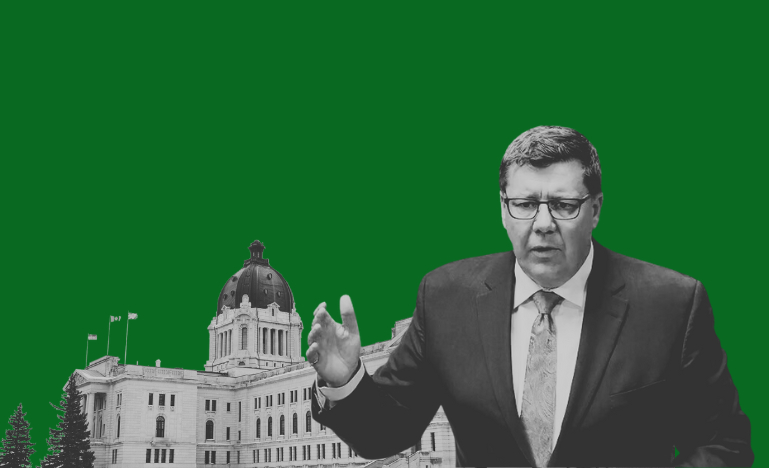Saskatchewan resorts to notwithstanding clause
The provincial government tables its school pronoun bill. But does invoking s. 33 put an end to the constitutional challenge?

“The Government’s expression of the public interest is reversible. UR Pride’s expression of these students’ public interest is, potentially, irreversible while possibly attracting irreparable harm.”
That was the conclusion Justice Michael Megaw came to when he issued an injunction last month, halting the Saskatchewan government's naming and pronoun policy in the province's schools before a constitutional challenge could go to a full hearing. The policy requires teachers to inform parents when students choose to go by different names or pronouns.
What was striking was that the Saskatchewan Court of King’s Bench dismissed the government's claim that the case was premature, given the policy had not yet been implemented. Justice Megaw held that the public interest in preserving the well-being of the minority of students, who might face irreparable harm and mental health challenges if denied the opportunity to express their gender identity, outweighs the public interest in endorsing the government's policy.
He also granted UR Pride Centre for Sexuality and Gender Diversity public interest standing.
In response, Saskatchewan Premier Scott Moe has recalled the provincial legislature to table legislation to stop children under 16 from changing their names or pronouns at school without parental consent. By invoking the notwithstanding clause, the government bypasses the need to await a ruling on the case's merits.
Adam Goldenberg, a partner with McCarthy Tétrault LLP in Toronto, was counsel for UR Pride, and says that a challenge may still move forward, but it is unclear how.
The government still has until tomorrow to appeal the injunction decision. "So we will see if the government is going to bring an appeal to continue to engage with the court process, or if they are going to focus on this legislation it’s going to introduce that will use the notwithstanding clause,” Goldenberg says.
Complicating matters, the government has replaced the lawyers for the Attorney General with counsel from a private law firm, a somewhat uncommon move, as highlighted by Goldenberg.
“The lawyers for the government were excellent, senior experienced constitution lawyers with deep knowledge of this area of the law,” Goldenberg says. “I do think that the decision to go to outside counsel has unfortunately resulted in some delay to the schedule for the application, such that the deadline for the government to file additional evidence has been extended, and the ultimate hearing of the application will now take place in early 2024 rather than in November, and that is disappointing.”
The government's decision to change its legal team would imply a commitment to move forward with this case, says Goldenberg.
“What is a bit perplexing to me is that the government seems to be blowing hot and cold on its intentions,” he says adding that it's inappropriate as a legal matter for the government to resort to the notwithstanding clause before the courts have a chance to weigh in. "The choice to change council suggests that the government feels the same way, but its actions in the legislature suggest a different attitude,” Goldenberg says. “Being an optimist, I am hopeful that I will get to litigate this case on the merits.”
Barton Soroka, an associate with Gerrand Rath Johnson LLP in Regina, is the Sexual and Gender Diversity Alliance (SAGDA) Section chair for the Saskatchewan Branch of the Canadian Bar Association.
“The CBA recognizes the importance of the rule of law and the ability of the legislature to invoke Section 33," he says. "But in doing so, [it] would call on leaders of the province to recognize and respect the requirement that the judiciary make their judgements, not based on perceived popularity but on the core and fundamental rights that all citizens are meant to enjoy.”
Soroka finds it troubling that the premier labeled the injunction decision as "judicial overreach" just three hours after its release. He sees this as an indication that the legislature is attempting to limit the authority of the judicial branch in a matter that falls squarely within its jurisdiction.
“The government has injured the respect that the court has in the eyes of some members of the public,” Soroka says. He doubts the government took the time to read the decision. "[It] is just another indication that the government is moving far too quickly on this issue, and that because they are moving so quickly they have not had a chance to research and get the underlying facts to support their position.”
Soroka says the use of the notwithstanding clause in this instance sets a dangerous precedent.
“Instead of recognizing the importance of protecting vulnerable Saskatchewan youth, we will do what we want with any justification we please, and in doing so, not only increase the risk of irreparable harm, as found by Justice Megaw, but also attack the judiciary in an attempt to justify our decision.”


